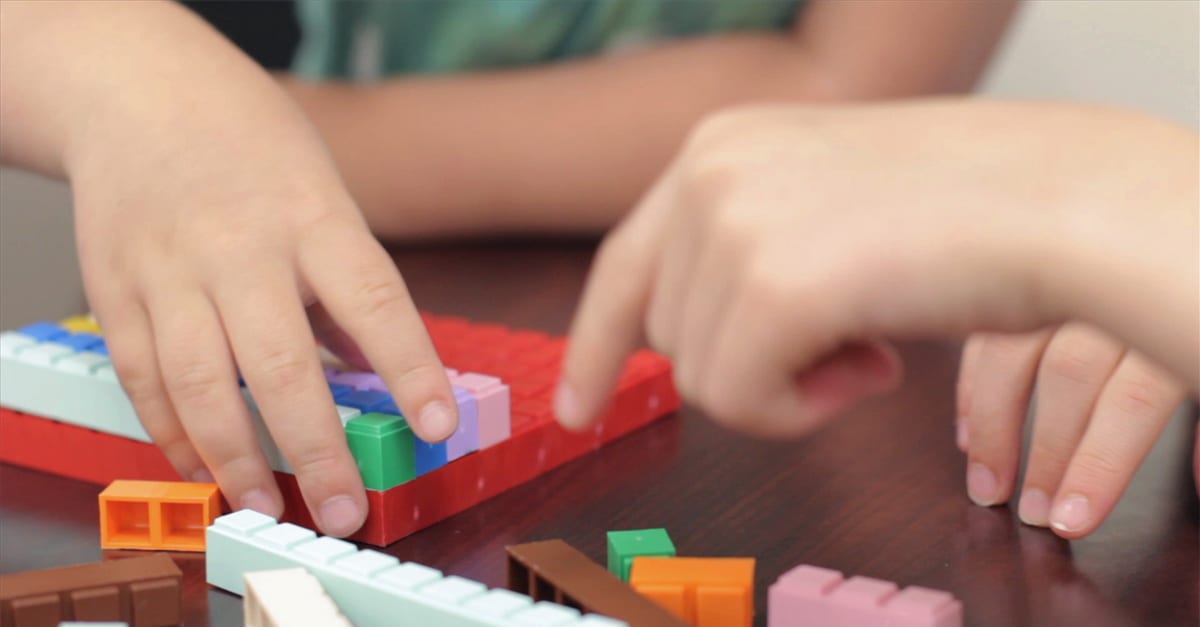
Specific tips on reducing maths anxiety for your student
For many students, mathematics is more than just a chore. It’s a source of gut-wrenching stress and constant dread that’s to be avoided at all costs.
That’s because mathematics anxiety is a legitimate condition. It has long-term consequences for learning, and it doesn’t disappear with age.
Here’s what you need to know about maths anxiety, plus specific tips for parents and teachers wanting to rebuild the mathematical confidence of their students.
What is maths anxiety?
According to the Australian Mathematical Sciences Institute (AMSI), maths anxiety can be defined as:
Maths anxiety: A phenomenon where individuals suffer from the irrational fear of mathematics to the extent that they become paralysed in their thinking and are unable to learn or be comfortable with mathematics.
This anxiety can occur during a mathematics class or in anticipation of it, and it impedes the working memory that’s so vital for mathematical thinking. Under stress, students have difficulty ‘thinking straight’ and solving even basic problems.
Why is maths a hard subject?
If you've never been taught to ride a bike and someone told you how to ride, would you know what to do just from their description of the action? Even if their description was very detailed and intricate? No, it would probably just confuse you more.
This is often the case with maths. Students are shown numbers and given formulas of how to use that number when adding , multiplying, doing fractions and algebra. They are asked to then "practice" what they've learnt and pass tests on that knowledge.
However, a crucial step is missing. How can a student know what those numbers are if they haven't touched, felt or seen those numbers? It's the same as riding a bike. You need a bike and you need to jump on it and ride down the hill before you know you've got handlebars, brakes and pedals.
Often, this confusion of just teaching numbers and formulas (without any understanding or hands-on components) is very tricky for those with learning differences, dyslexia and dyscalculia. While other students may struggle with the more advanced concepts, those with learning differences just stop altogether. It's too hard and it doesn't make sense to them - and rightly so!
How can you reduce maths anxiety for your student?
Educational research suggests that students do not ‘grow out of’ mathematics anxiety. This explains why so many parents and teachers hold onto the negative attitudes they themselves developed at school.
Instead, direct intervention is needed to reduce maths anxiety. Schools and policymakers have an important role to play by restructuring mathematics curricula and ensuring teachers have adequate training, but there are other things that can be done in homes and classrooms to make a difference.
One of the most effective strategies to alleviate maths anxiety is to start using hands-on manipulatives with each maths lesson.

There are also specific ways that you can support your student in their learning process and reduce maths anxiety. As Christopher Hogbin shares, you can start using these tips right away with your student.
7 Tips to Reduce Maths Anxiety: for Parents
- Involve your child in maths-related activities around the house (e.g., cooking, shopping, timetabling). Make it as fun and relevant as possible.
- Improve your own mathematical ability. Stay up to speed with online instruction videos and do some online research about the fun ways students are learning about maths. You might be surprised by how well you ‘get’ it, or the opportunities for your own learning!
- Use a multisensory maths program that engages your child with interactive activities, hands-on tools and step-by-step instructions, while keeping up to date and monitoring their progress through the end-of-lesson tests
- Speak to your child’s teachers about how you can reduce maths anxiety when they are learning maths at home and in the classroom
- Change the language used around maths at home. Avoid making self-defeating comments about the subject.
- Use maths songs, games and activities to engage your student's curiosity and playfulness around this tricky subject.
- Engage with your child’s maths learning. Have regular conversations with their teacher and discuss their challenges and achievements in an encouraging way at home.

8 Tips to Reduce Maths Anxiety: for Teachers
- Build your own mathematical confidence and knowledge base by joining mathematics teaching associations, comparing strategies with colleagues, or attending specific maths training.
- Equip your students to talk out loud about mathematics. Introduce maths as a language and start by presenting concepts in familiar language before introducing mathematical terminology.
- Take the focus off right and wrong answers. Instead, value risk-taking, effort, and progress. This approach of encouraging a student's learning journey instead of their best marks is a wholesome and rewarding approach. Research shows that when praised for their effort, 80% of kids get better results.*
- Present different perspectives of a concept. Highlight that mathematics isn’t as rule-bound and inflexible as it might seem. Introducing maths through art, philosophy or music is a good way to expand your student's knowledge.
- Identify knowledge gaps that have arisen in previous years and work to fill them, so sequential learning isn’t impacted. You can get a clear snapshot of your student's maths understanding by taking the free diagnostic test here.
- Give parents quick and simple mathematics activities that they can engage their children with at home. By engaging parents in their child's maths journey, your students will feel much more supported.
- Celebrate mistakes as learning opportunities. Adopt a ‘failure-as-enhancing’ mindset rather than a ‘failure-as-debilitating’ mindset. This is an important skill to maintain, especially when students are struggling with concepts.
- Differentiate student learning for individual levels of ability. Work with each student at their own pace to make sure they really understand what is being taught - and don't have to go back right to the beginning because they didn't understand basic concepts! Place Value is a foundational concept that is often misunderstood and has massive implications for your student's education if not understood.
As you can see, there are specific ways you can help reduce maths anxiety for your student. These recommendations as detailed above, combined with a multisensory, hands-on approach to learning, will significantly reduce maths anxiety and build greater confidence for your student.
When students gain confidence in maths, this empowered frame of mind ripples out and positively affects other subjects. Students become empowered and are encouraged to learn, engage and grow. It's been proven too, by hundreds of schools across Australia that are using our specialised maths program for success.
Good luck with supporting your students and reducing maths anxiety,
Hope that helps,
The Team at Maths Australia
